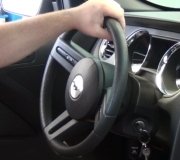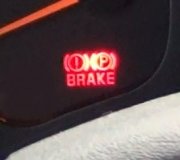I've tried a number of things without any success getting the brake system back to normal. Here is what I have done:
- Replaced the master cylinder.
- Replaced both hard brake lines going to the rear of the car (they had a number of rust areas).
- Bleed all four wheels.
- Disconnected the vacuum line going to the brake booster and confirmed (with a vacuum pump) that it doesn't have a vacuum leak.
I should also mention that when the engine is not running the brake pedal has some, but not much resistance. With the engine running there is basically minimal pedal resistance.
SPONSORED LINKS
Thursday, June 11th, 2020 AT 3:01 PM



